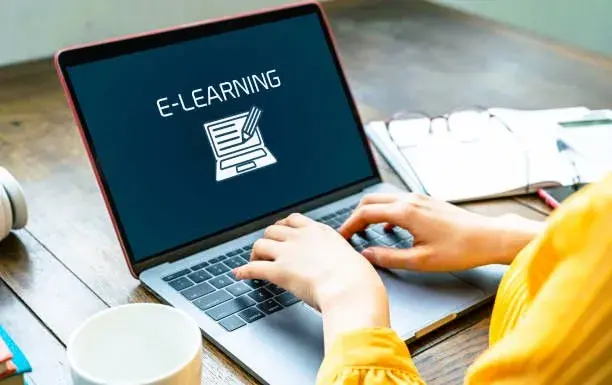Top 12 Daily Habits for a Healthier Lifestyle
Achieving a healthier lifestyle doesn’t necessarily require drastic changes. Often, it’s the consistent daily habits that make the most significant impact on your overall well-being. In this comprehensive guide, we’ll delve into the top 12 daily habits that can help you achieve a healthier, more fulfilling life. Habit 1: Start Your Day with Hydration The habit of beginning your day with a glass of water can set a positive tone for the hours ahead. This simple ritual jumpstart your metabolism, aids digestion, and rehydrates your body after a night’s rest. For an extra boost, consider adding a squeeze of fresh lemon; the vitamin C not only offers a healthful start but also enhances the taste. Habit 2: Eat a Balanced Breakfast Breakfast is not merely the first meal of the day; it’s the foundation of your energy levels and overall health. A balanced breakfast typically comprises a mix of protein, fibre, and healthy fats. Options like oatmeal with fresh berries and a sprinkling of nuts, Greek yogurt with a drizzle of honey, or a vegetable-packed omelette provide essential nutrients and sustained energy to kickstart your day. Habit 3: Prioritize Regular Exercise Consistent exercise is a non-negotiable habit for a healthier lifestyle. Whether it’s a morning jog, a session at the gym, or a home workout, regular physical activity boosts your physical and mental well-being, promotes weight management, and reduces the risk of chronic diseases. Habit 4: Mindful Eating In our fast-paced lives, it’s easy to rush through meals without truly savouring them. Mindful eating is a practice that encourages you to engage all your senses and pay attention to the flavours, textures, and sensations of your food. By being present during your meals, you can prevent overeating, aid digestion, and cultivate a deeper appreciation for the culinary experience. Habit 5: Stay Hydrated Throughout the Day Starting your day with water is fantastic, but it’s essential to maintain hydration throughout the day. Adequate water intake supports digestion, circulation, and healthy skin. Consider carrying a reusable water bottle and setting reminders to ensure you drink enough water regularly. Habit 6: Get Sufficient Sleep A good night’s sleep is foundational for your overall well-being. The habit of aiming for 7-8 hours of uninterrupted, restful sleep each night should be non-negotiable. Establishing a regular sleep schedule and creating a comfortable sleep environment can significantly enhance the quality of your rest. Habit 7: Practice Stress Management Daily life is filled with stressors, making it crucial to have effective stress management strategies. These can range from deep breathing exercises and meditation to mindfulness practices and engaging in hobbies or activities that relax your mind. Making stress management a daily habit can reduce the impact of stress on your physical and mental health. Habit 8: Connect with Loved Ones Human connections play a vital role in emotional well-being. Make it a daily habit to connect with friends or family, even if it’s just a quick phone call, a heartfelt message, or spending time together. Social support is known to reduce stress, promote happiness, and provide a sense of belonging. Habit 9: Limit Screen Time With the prevalence of digital devices, it’s easy to spend excessive time in front of screens. The habit of setting boundaries for screen time can significantly impact your mental and physical health. Allocate time for activities that don’t involve electronic devices, such as reading, engaging in outdoor activities, playing board games, or simply having face-to-face conversations. Habit 10: Incorporate Meditation Meditation, even for a few minutes each day, is a powerful habit to boost mental well-being. It reduces stress, improves focus, and enhances mindfulness. Whether it’s a guided meditation or simply focusing on your breath, the daily practice of meditation can have profound effects on your overall health and happiness. Habit 11: Embrace Lifelong Learning Make it a daily habit to expand your knowledge and skills. Whether you read a book, take an online course, or engage in a hobby that challenges your mind, lifelong learning keeps your brain sharp, fosters creativity, and enriches your life. Habit 12: End Your Day with Gratitude Before you drift off to sleep, take a moment to reflect on the positive aspects of your day. The habit of practicing gratitude can boost your mood, improve your outlook on life, and enhance your mental well-being. Consider keeping a gratitude journal where you jot down things you’re thankful for, making this practice a part of your nightly routine. Conclusion Incorporating these top 12 daily habits into your daily routine can lead to a healthier, more fulfilling life. Change takes time, so start with one or two habits and gradually incorporate more as they become part of your daily life. Over time, these habits will become second nature, and you’ll find yourself on the path to a healthier, happier lifestyle. By making conscious choices each day, you can achieve the well-being and vitality you desire. The author, Pratik Ghosh is associated with ArdorComm Media
Top 12 Daily Habits for a Healthier Lifestyle Read More »




